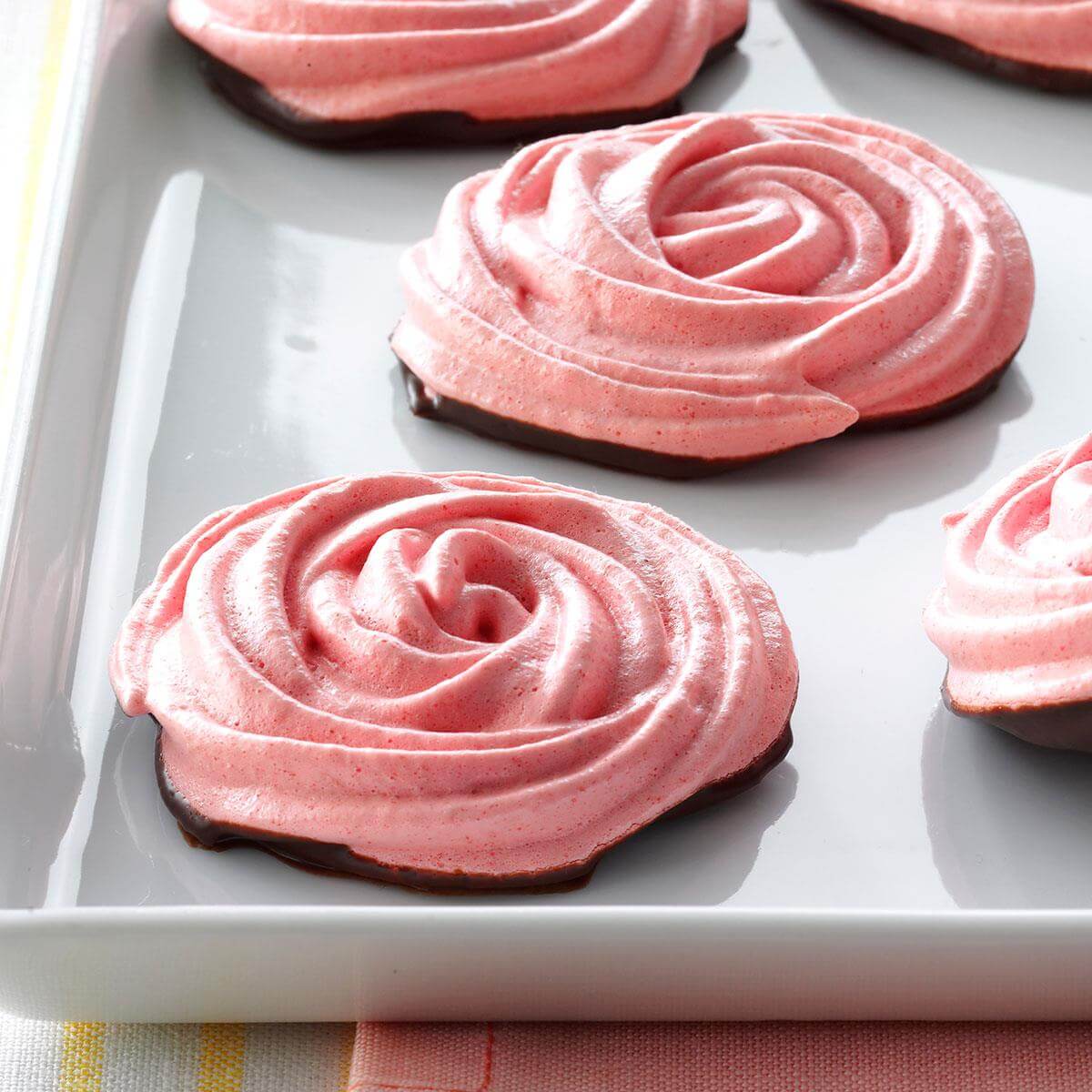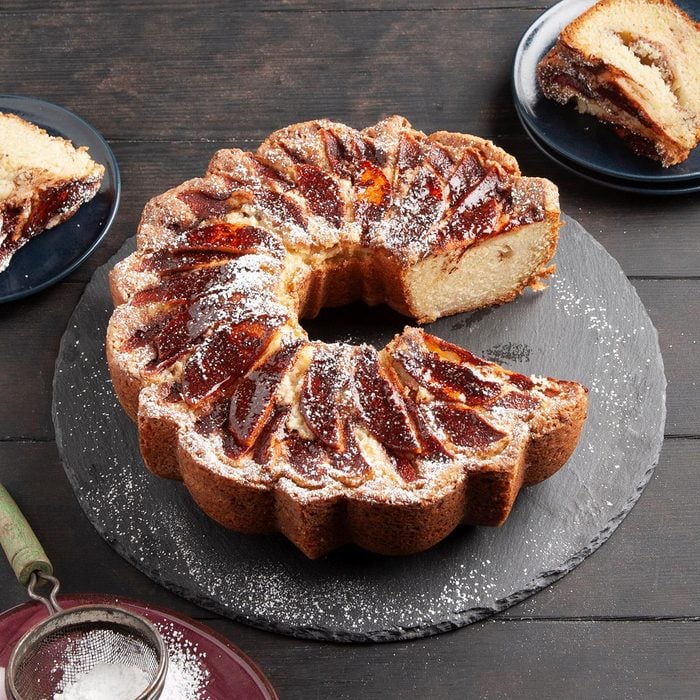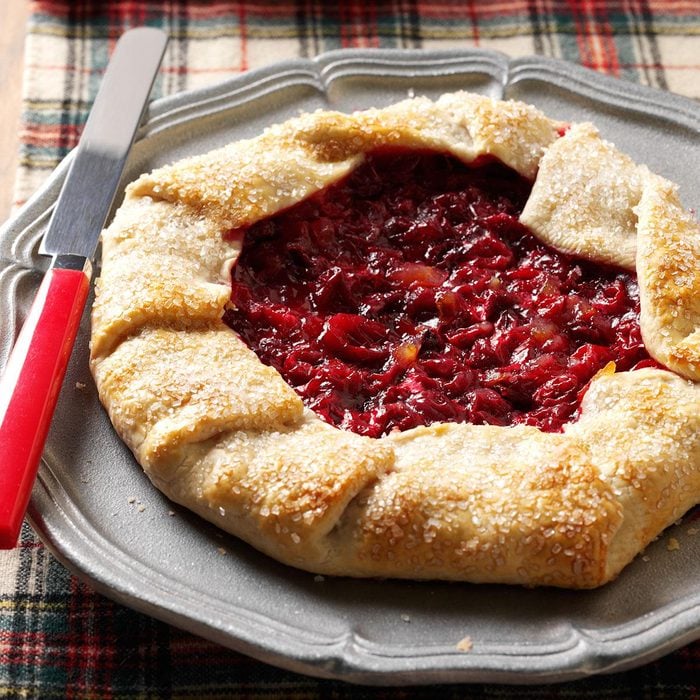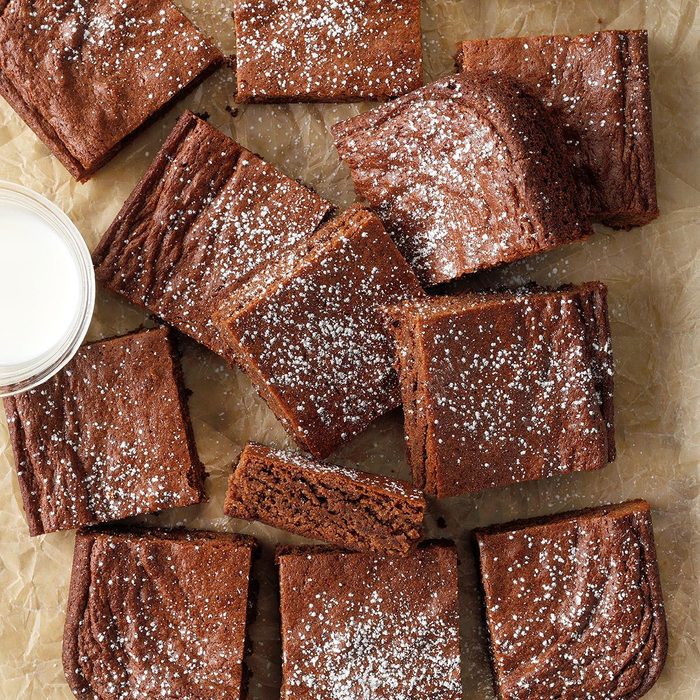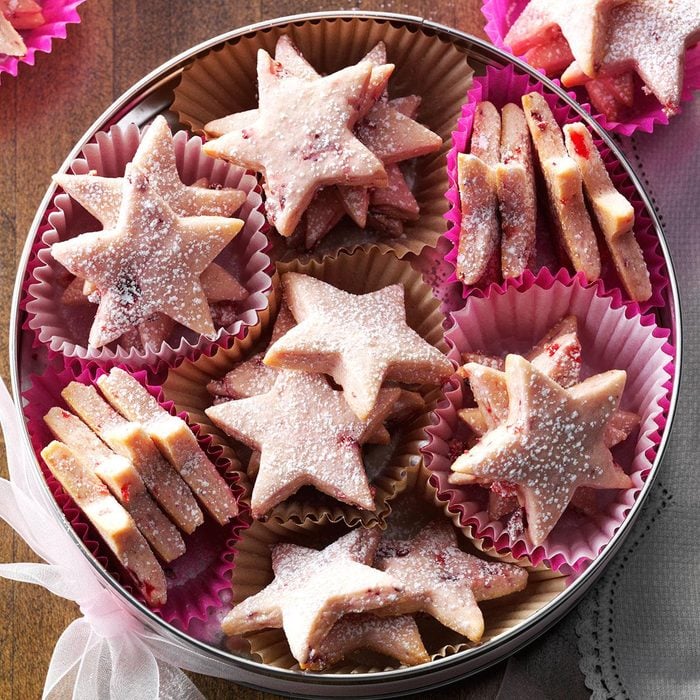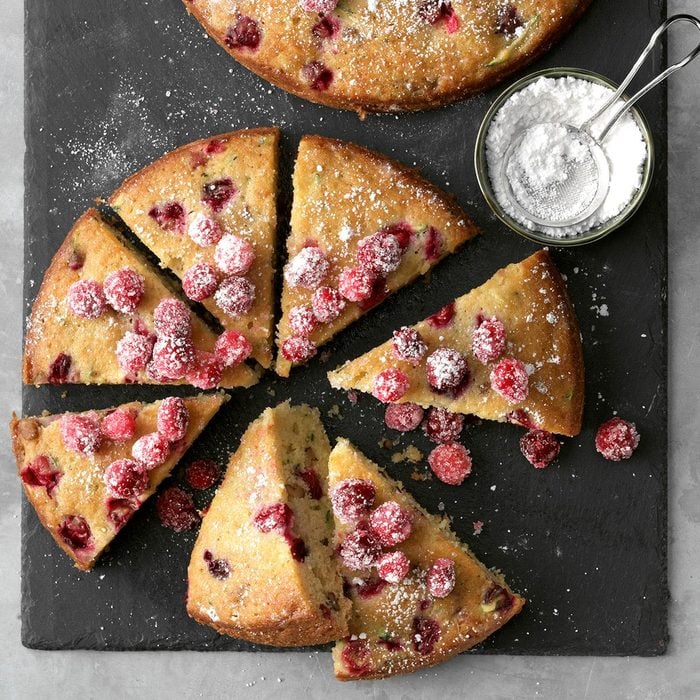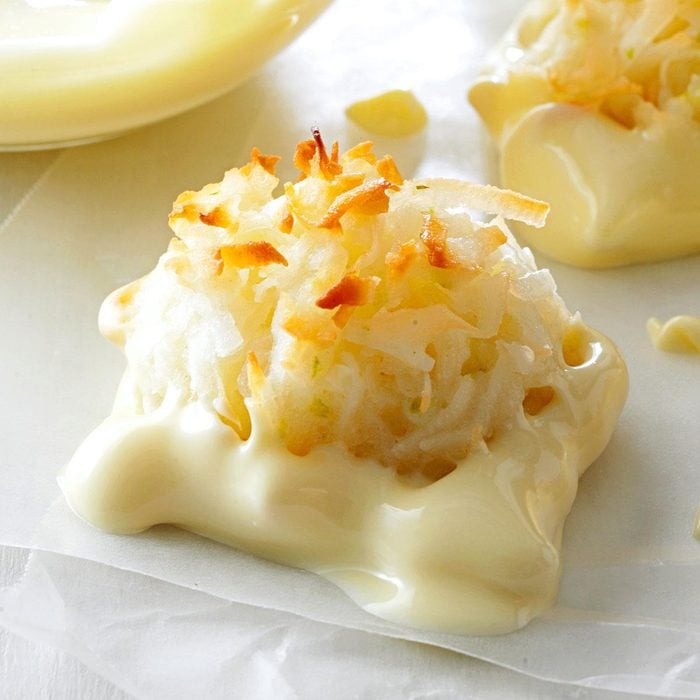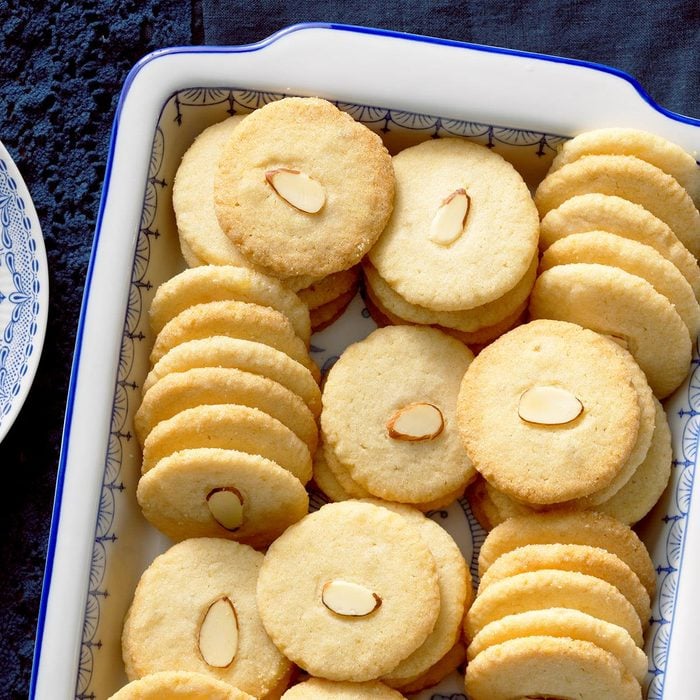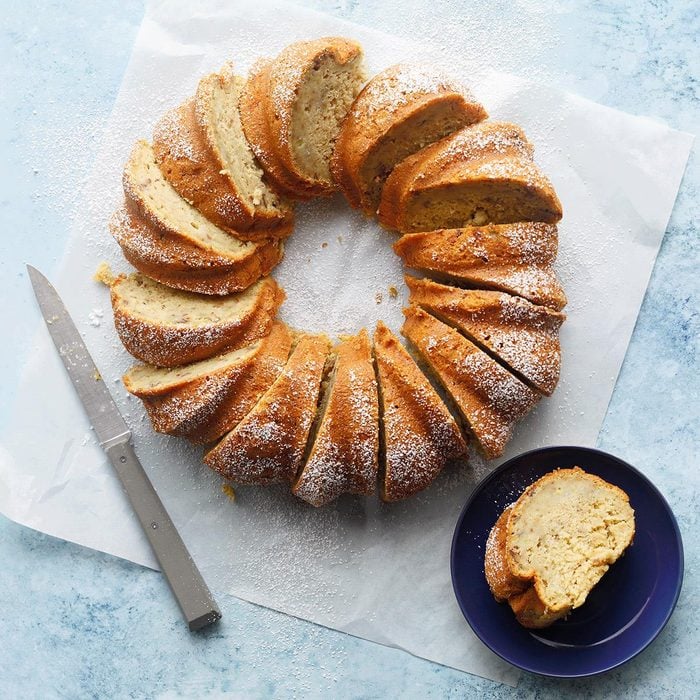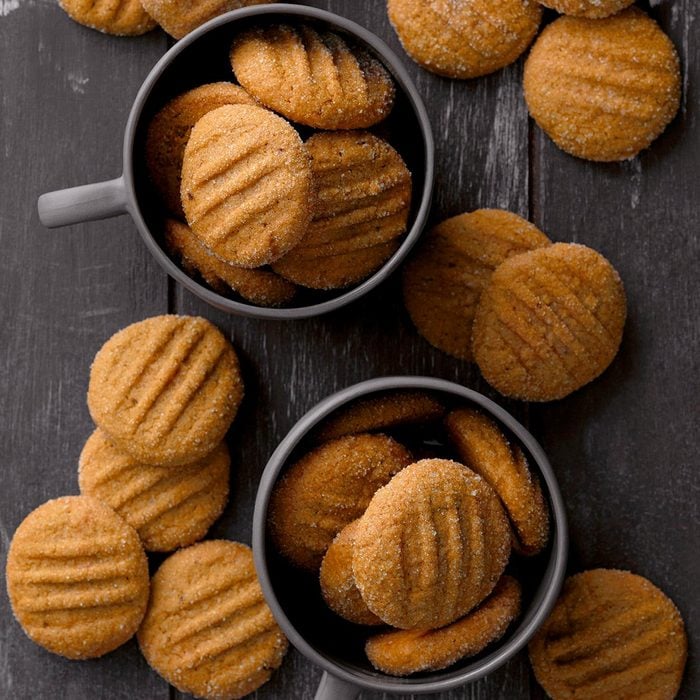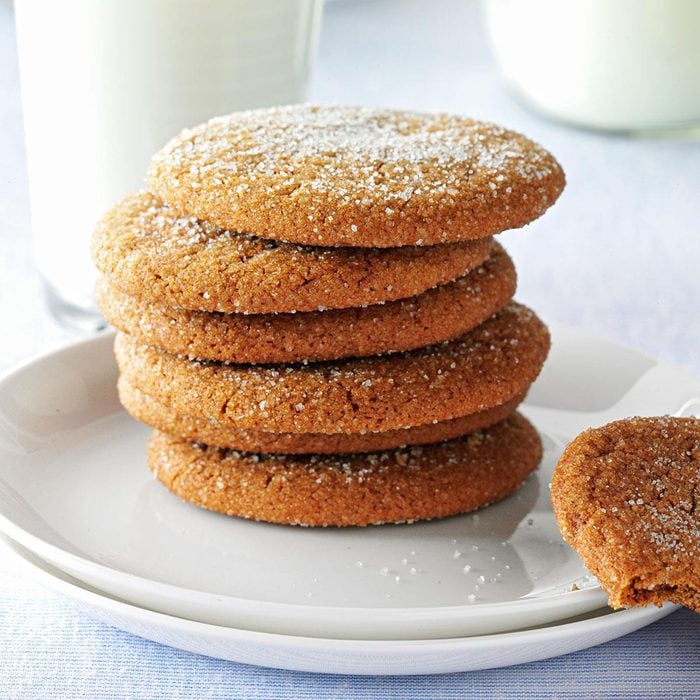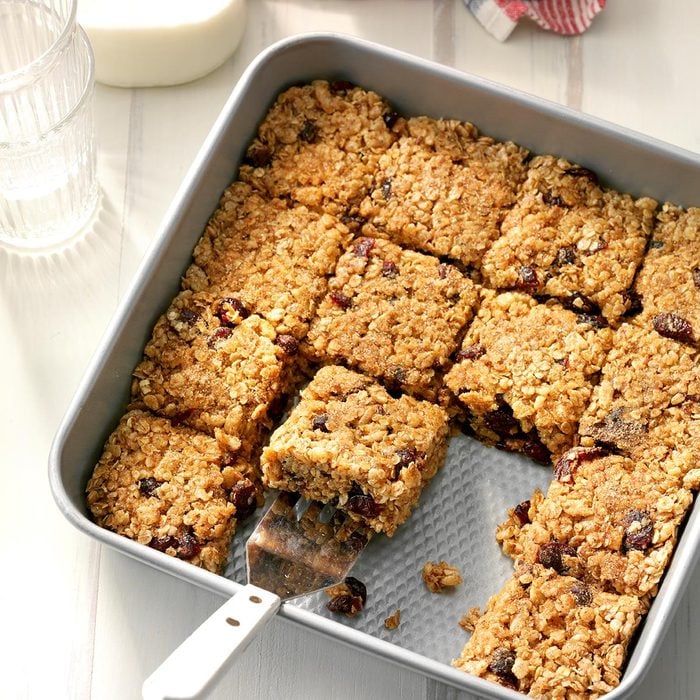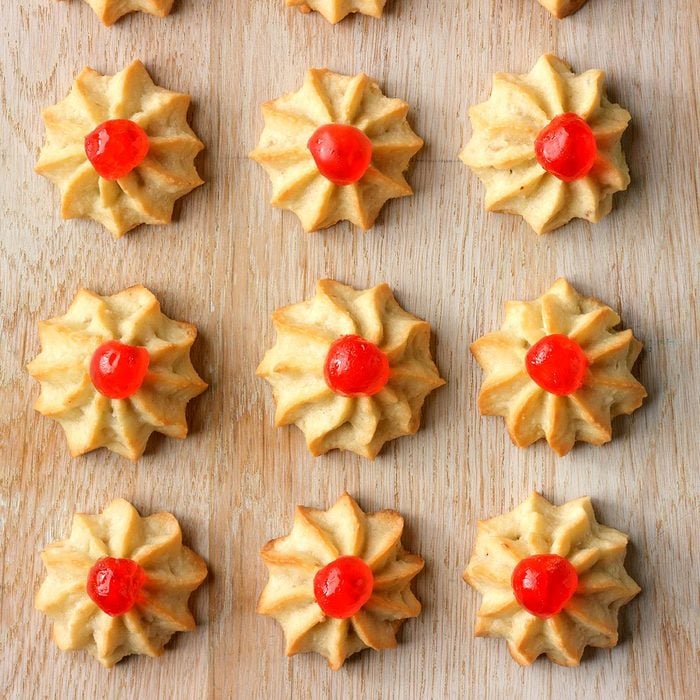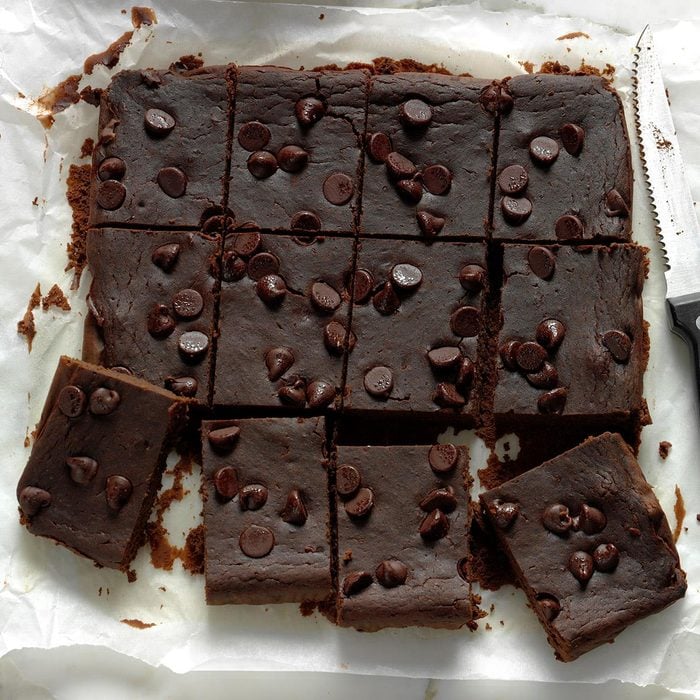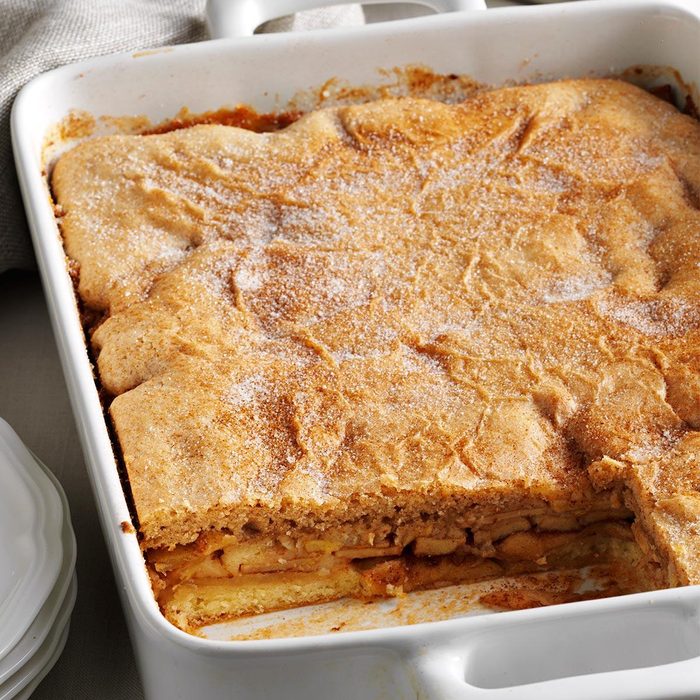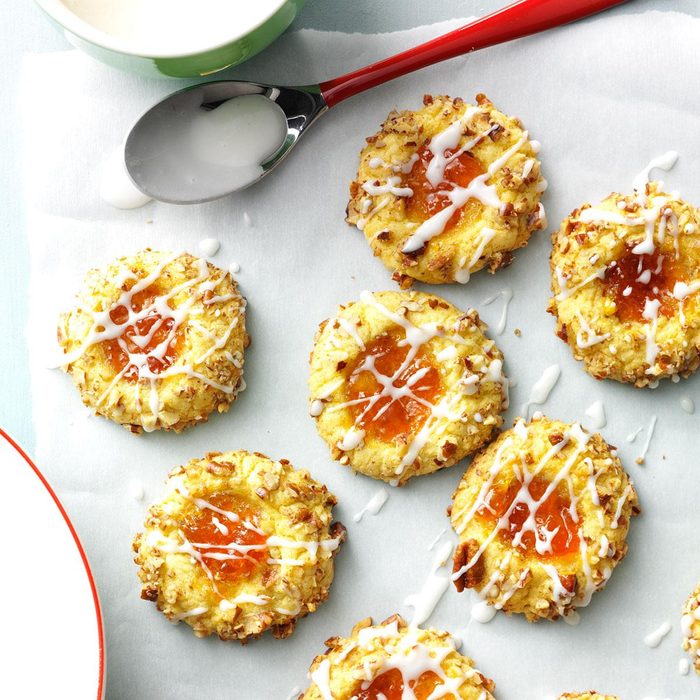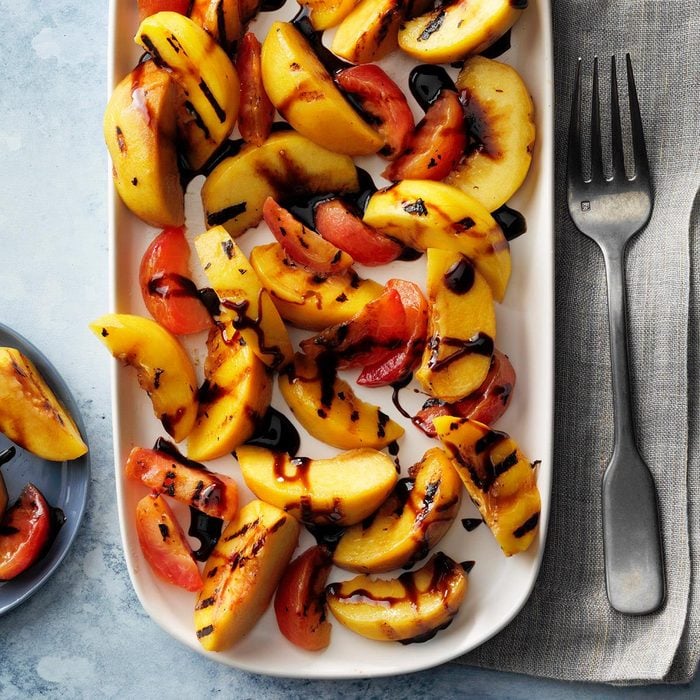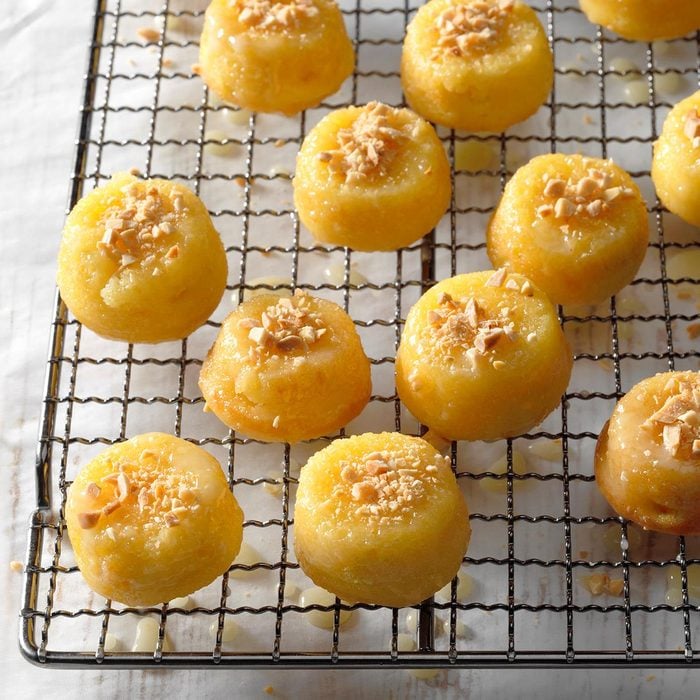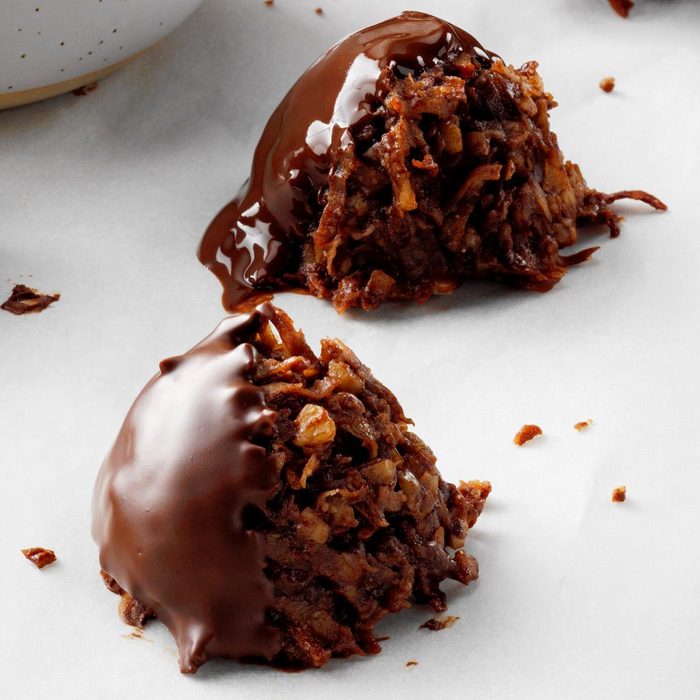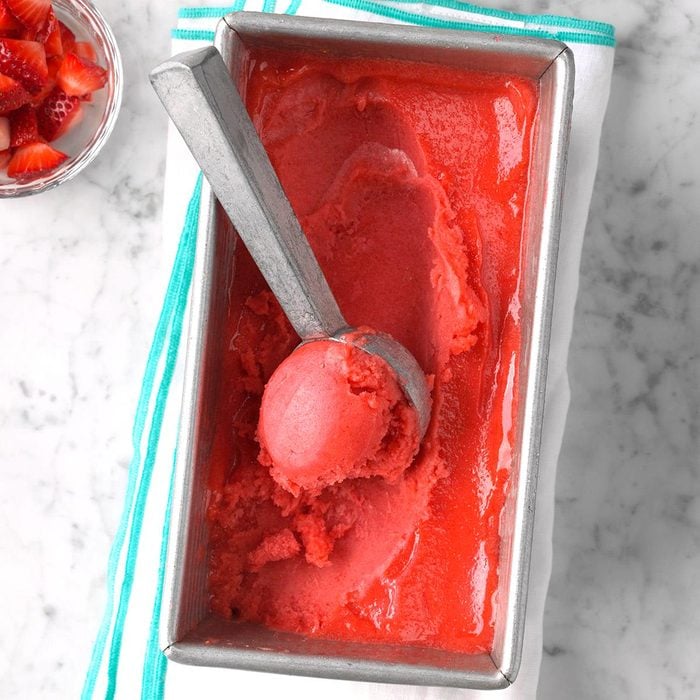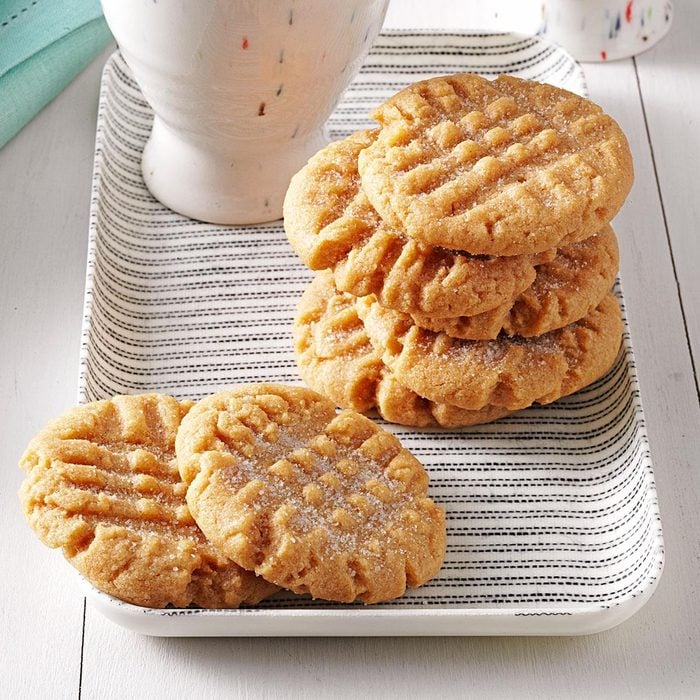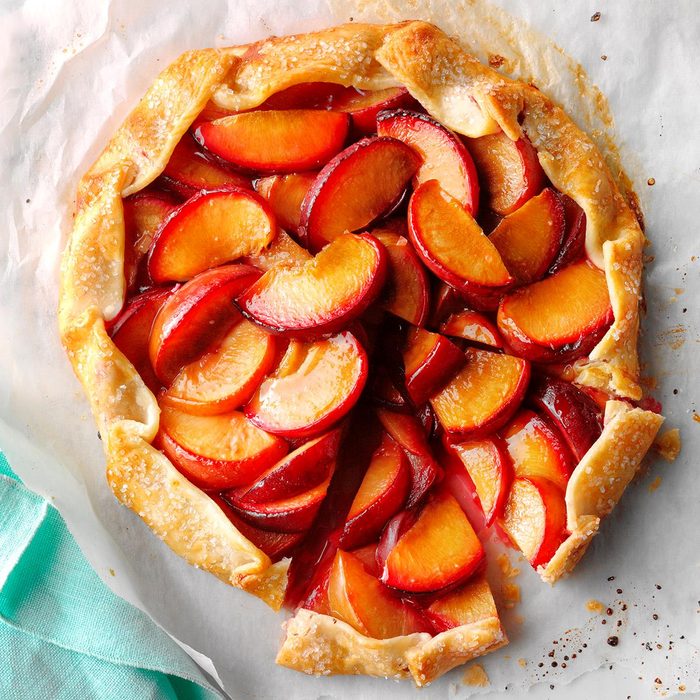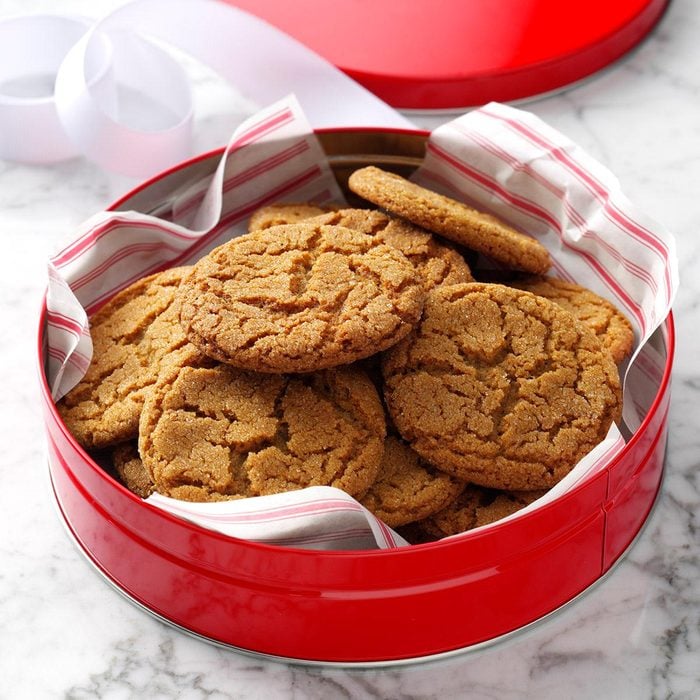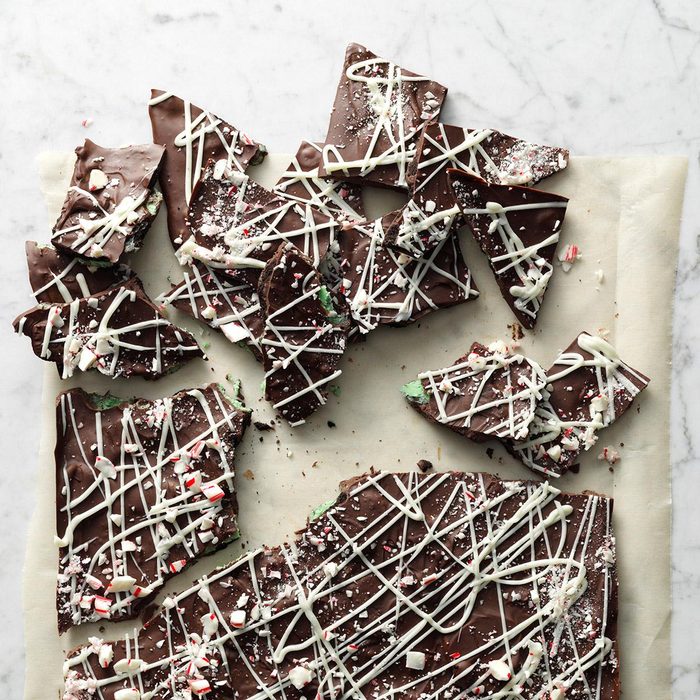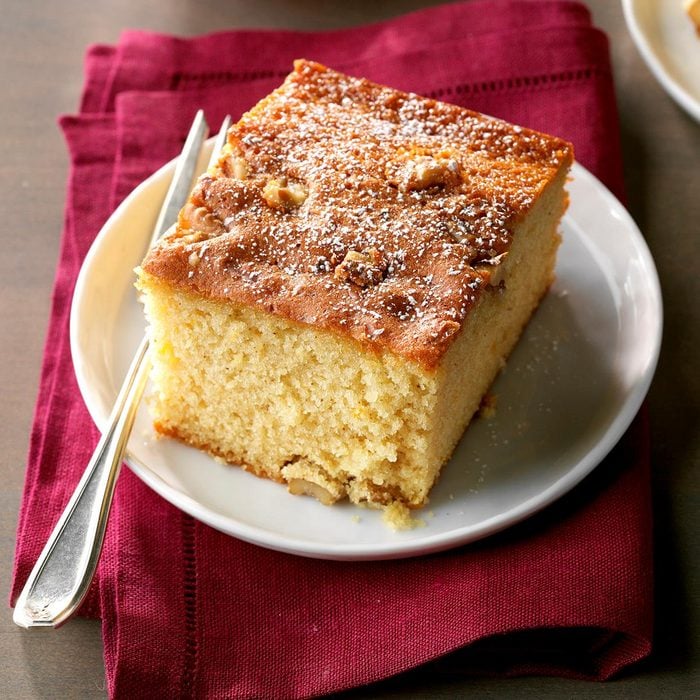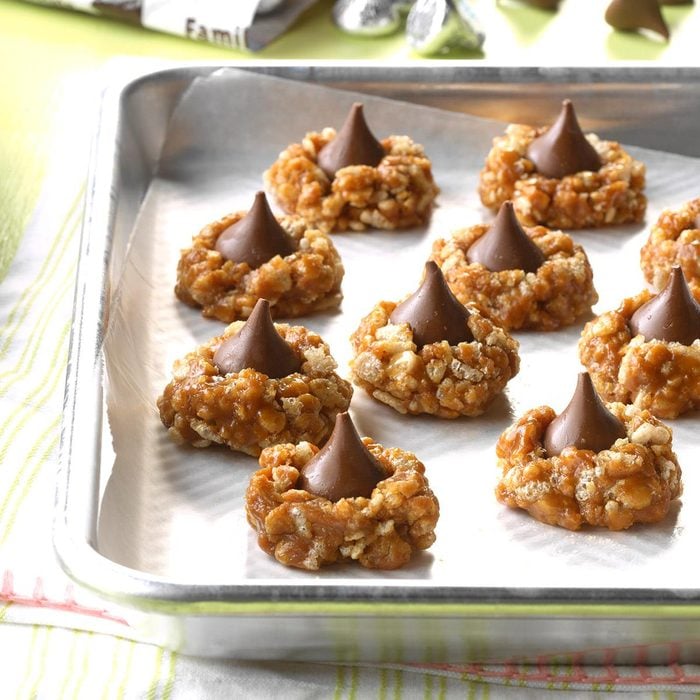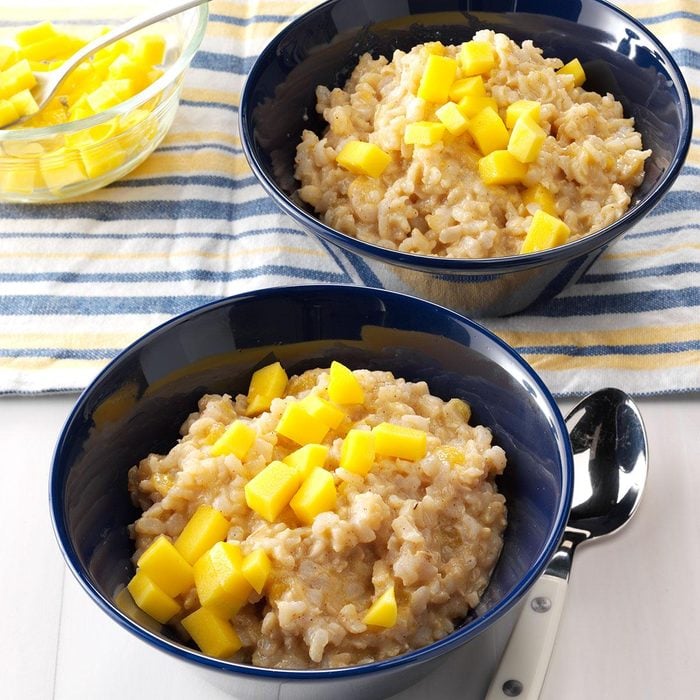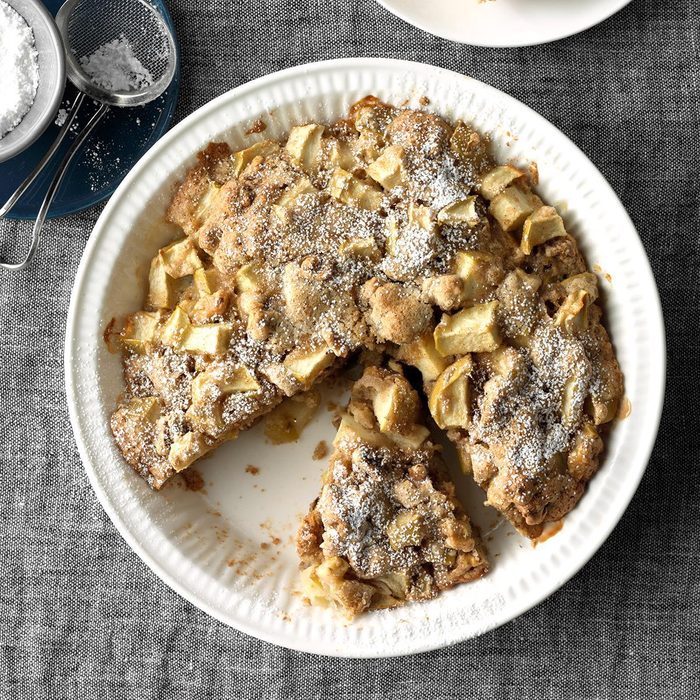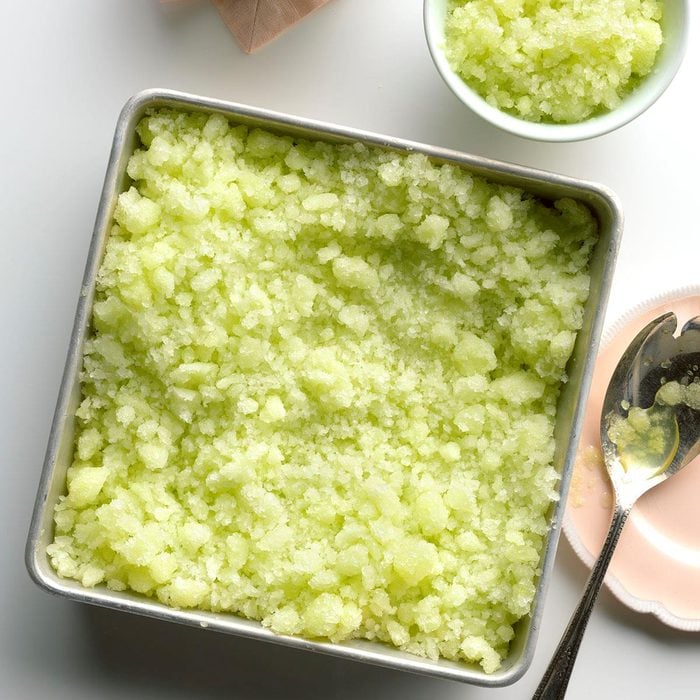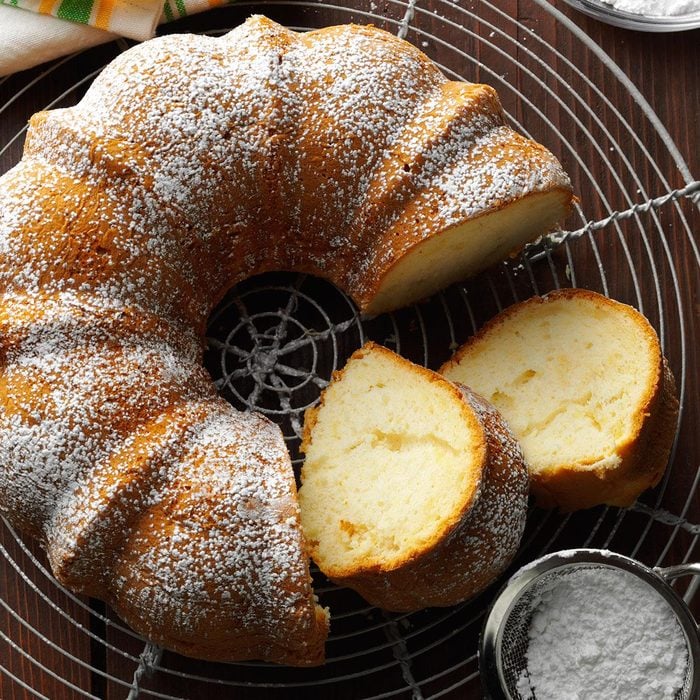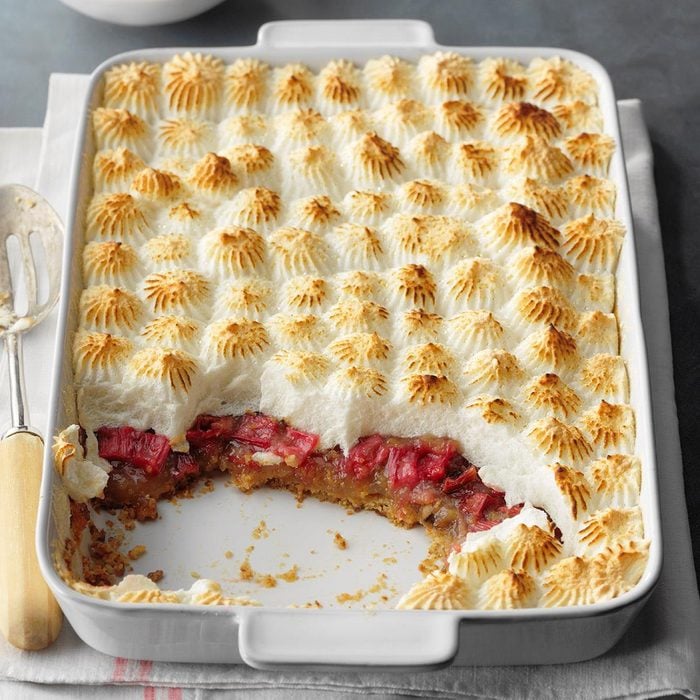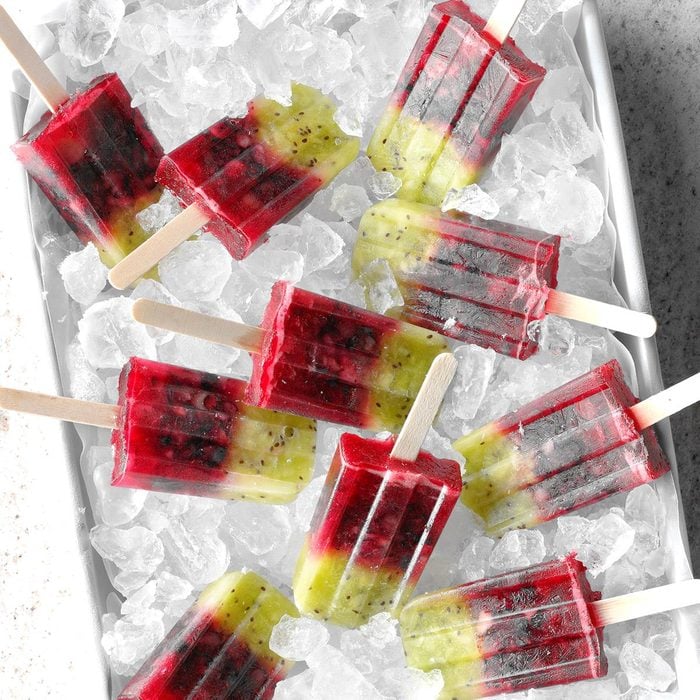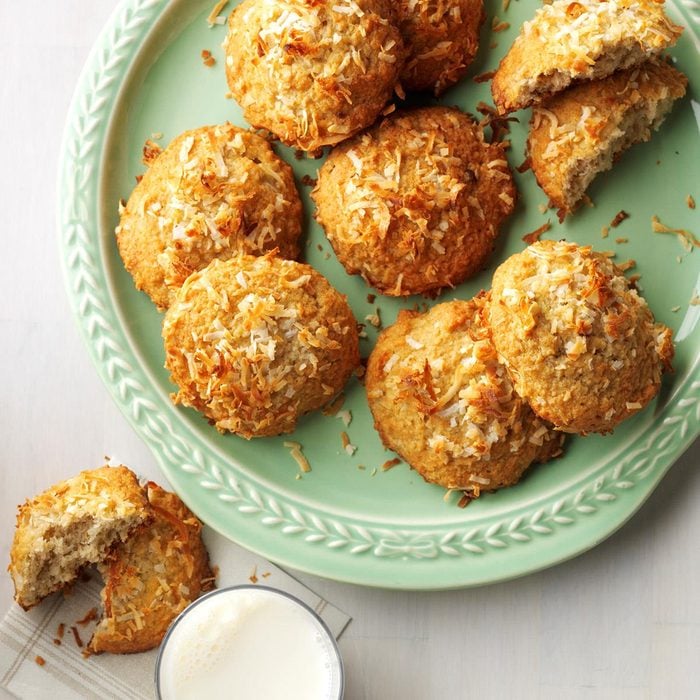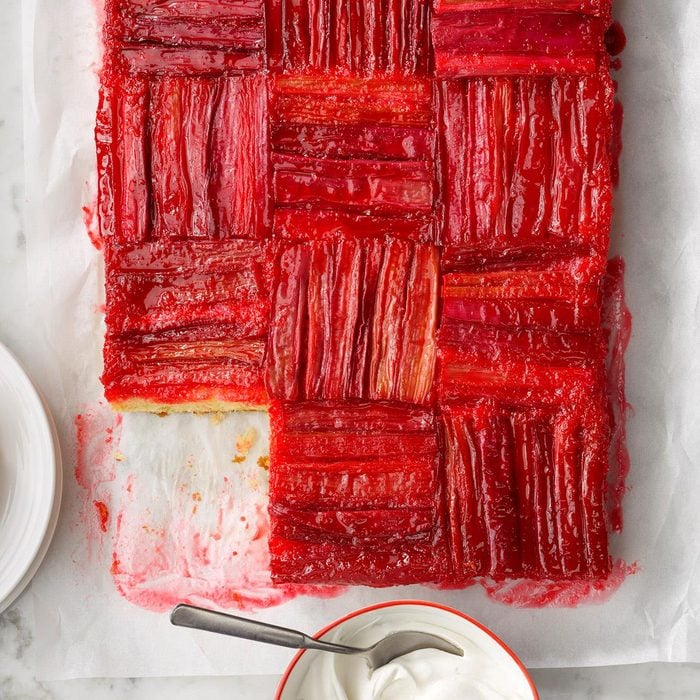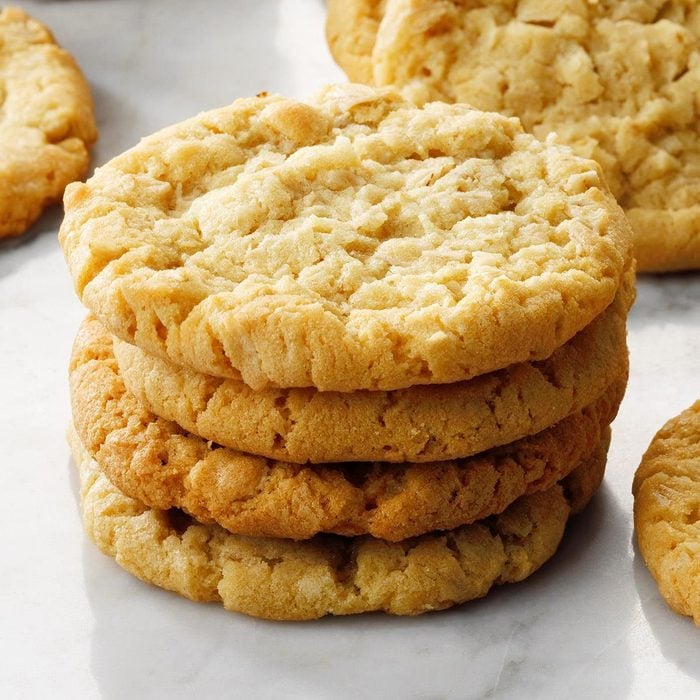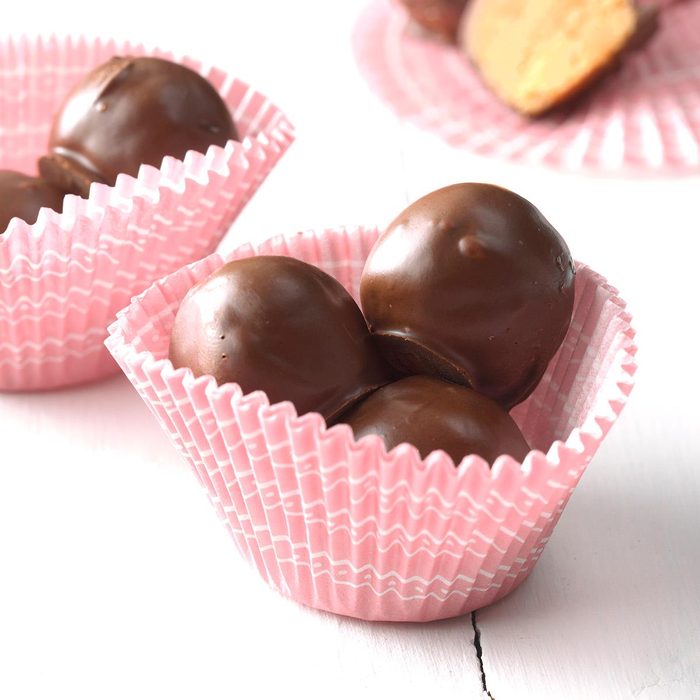Chocolate-Dipped Strawberry Meringue Roses
Eat these
dairy-free desserts as is or crush them into a bowl of strawberries. —Amy Tong, Anaheim, California
Banana Bread Snack CakesThis banana bread snack cake doesn't need any frosting—just a dusting of powdered sugar. Guests are always amazed that I made this treat from scratch. —Denise Loewenthal, Hinckley, Ohio
German Apple CakeWith the long, cold winters we have here, this German apple cake recipe has warmed many a kitchen. The cake is perfect for breakfast, dessert or an evening snack. I've often made it for parties, and I've always received compliments on it. —Grace Reynolds, Bethlehem, Pennsylvania
Lemon Anise BiscottiWith the growing popularity of gourmet coffees, cappuccino and espresso, I’m finding lots of people enjoy these classic Italian lemon biscotti. These are also great because they're dairy-free! Perfect for enjoying with an
oat milk latte! —Carrie Sherrill, Forestville, Wisconsin
Lemon IceThis delicious sweet-tart lemon ice is a perfectly refreshing way to end a summer meal, or any meal, for that matter. It's one of my favorite naturally dairy-free desserts. —Concetta Maranto Skenfield, Bakersfield, California
Rustic Cranberry TartsI like to serve colorful desserts for gatherings with family and friends. These beautiful tarts are filled with cranberry and citrus flavor, and they’re easy to make and serve. —Holly Bauer, West Bend, Wisconsin
Chewy BrowniesCorn syrup helps keep these dairy-free brownies moist and fudgy. —Shiela Wood, Macksville, Kansas.
Cherry BiscochitosI discovered the wonderful anise flavor of
biscochitos, which are traditional cookies of New Mexico. I created my own version with maraschino cherries and fresh cranberries. —Mary Shivers, Ada, Oklahoma
Fruit & Almond BitesWith big handfuls of dried apricots and cherries, almonds and pistachios, we make dozens of no-bake treats you can take anywhere. —Donna Pochoday-Stelmach, Morristown, New Jersey
Mexican Cinnamon CookiesMy extended family shares a meal every Sunday. The aunts and uncles take turns bringing everything from main dishes to desserts like this traditional Mexican cinnamon cookie called reganadas. —Adan Franco, Milwaukee, Wisconsin
Cranberry Zucchini WedgesI try to slip zucchini into as many dishes as possible. These cake wedges have wonderful flavor and a tender texture. They are pretty, too, with bits of pineapple, cranberries and zucchini. And they're perfect for brunch.—Redawna Kalynchuk, Sexsmith, Alberta
Jelly-Topped Sugar CookiesOn busy days, I appreciate this quick-to-make jelly-topped cookie. Top each sugar cookie with your favorite flavor of jam or jelly. —June Quinn, Kalamazoo, Michigan
Lime & Gin Coconut MacaroonsI took these lime and coconut macaroons to our annual cookie exchange, where we name a queen. I won the crown! —Milissa Kirkpatrick, Angel Fire, New Mexico
Jewish Apple CakeA friend from New Hampshire gave me this Jewish apple cake recipe, which took a blue ribbon at the county fair. —Jennie Wilburn, Long Creek, Oregon
Mexican Chocolate Walnut-Cherry BiscottiI love to combine flavors and spices from different cultures. These cookies have ground cinnamon in them, which is a classic flavor in Mexican chocolate. They are very crunchy and are loaded with maraschino cherries and toasted walnuts. —Nancy C. Evans, Phoenix, Arizona
Almond Ginger CookiesThink outside the box this season and enjoy these traditional Chinese cookies, each one topped with an almond slice. —Shirley Warren, Thiensville, Wisconsin
Pecan Banana Bundt CakeMy daughter, Liz, often made this banana bundt cake for us. It was delicious and different. She discovered five-spice powder during a culinary class field trip. It's also one of our family's go-to dairy-free desserts. —Marina Castle Kelley, Canyon Country, California
Crispy Coffee CookiesI created this coffee cookies recipe because I wanted an easy-to-make cookie that folks can't resist. These tempting treats have a hint of coffee flavor and aren't overly sweet.
Spiced Rum and Pear CakeThe flavors in this cake really make it stand out as a special-occasion dessert. With raisins, fresh sweet pear chunks, rich spices, crunchy walnuts and rum, it's a fine finale for your holiday spread. If you don't cook with alcohol, try substituting apple juice for the rum—it will still be delicious! —Julie Peterson, Crofton, Maryland
Joe FroggersLarge, soft and chewy, these cookies are made to munch. This classic recipe has a warm blend of spices that seems stronger the second day. Your family will definitely ask you to make them again. This is an old-fashioned recipe and a great dairy-free dessert. —Taste of Home Test Kitchen, Milwaukee, Wisconsin
Cinnamon-Cranberry Oat BarsI'm a swim coach for kids, and I started making these bars for them as a snack. I wanted something that was easy to eat but would also give them energy. The kids loved them from the very first time I brought them. Now I bring them to every team event. —Sarah Riviere, Prescott, Arizona
Harveys Coconut MacaroonsAs the executive chef at Harveys, a resort hotel in Lake Tahoe, I modified this classic recipe, which originated a century ago at a renowned pastry shop in Vienna, Austria. Besides being delcious, macaroons of all kinds make for great dairy-free desserts. —Norbert Koblitz, Lake Tahoe, Nevada
Black Bean BrowniesYou’d never guess these rich, velvety chocolate treats contain a can of black beans. This is at the top of my list of healthy-ish, dairy-free desserts. —Kathy Hewitt, Cranston, Rhode Island
Chunky Apple-Cinnamon CakeThis is a nice change from apple pie. It's tasty and worthy of a special occasion—plus, it’s very easy to make. —Ellen Ruzinsky, Yorktown Heights, New York
Apricot-Pecan Thumbprint CookiesI enjoy experimenting with cake mixes to make new cookie recipes. I love apricot, but feel free to fill the thumbprint in the center of these goodies with any fruit preserve you like. —Nancy Johnson, Laverne, Oklahoma
Jewish Chocolate Chip Mandel BreadThis traditional Jewish mandel bread recipe has been passed down in my family for four generations. It tastes wonderful with a cup of coffee,
hot cocoa or milk. —Monica Schnapp, Irvine, California
Grilled Stone Fruits with Balsamic SyrupGet ready to experience another side of stone fruits. Hot off the rack, these grilled nectarines practically melt in your mouth. —Sonya Labbe, West Hollywood, California
Citrus Mini CakesThese moist, bite-size muffins from Linda Terrell of Palatka, Florida are melt-in-your-mouth good. "With their appealing look, they really dress up a party table," she notes. The recipe makes a big batch, so there's plenty to please a crowd.
Hazelnut Cake SquaresWhen one of my daughters is asked to bring a dish to a church function, a birthday party or any special occasion, she asks me for this recipe. It is so easy to prepare because it starts with a cake mix. It doesn't need icing, so it's great for bake sales too. —Brenda Melancon, McComb, Mississippi
Chocolate Macadamia MacaroonsThis perfect macaroon has dark chocolate, chewy coconut and macadamia nuts and is dipped in chocolate—sinful and delicious! —Darlene Brenden, Salem, Oregon
Strawberry Citrus IceDaiquiri fans, put away your straws for this blend of strawberries, lime juice and orange juice in a refreshing ice. This is a great sweet for everyone: This citrus ice is one of my favorite vegan and dairy-free desserts. — Robin M. Keane, Framingham, Massachusetts
3-Ingredient Peanut Butter CookiesYes, you really can make amazing peanut butter cookies with just three ingredients; just follow this three-ingredient peanut butter cookie recipe to find out how.
Ginger Plum TartSweet cravings, begone: This free-form plum tart is done in only 35 minutes. It's extra awesome when served warm. —Taste of Home Test Kitchen
Cookie Jar GingersnapsThis gingersnap cookie recipe results in fluffy, delicious cookies that'll satiate your sweet tooth.
Oreos and Candy Cane Chocolate BarkThere are incredible surprises in this festive bark, including dark chocolate, candy canes and cream-filled cookies. We keep a big supply ready for gift-giving. —Robin Turner, Lake Elsinore, California
Walnut Honey CakeThis light and fluffy marvel all but melts in your mouth. Back in the day, it took effort for my grandmother's kitchen helper to make it, but it's a breeze now that we have stand mixers. —Lily Julow, Lawrenceville, Georgia
Festive Meringue CookiesTry these meringue cookies without cream of tartar! These festive treats sparkle not only during the holidays but for other occasions year-round. Use colored sugar or food coloring to change things up. —
Taste of Home Test Kitchen
Raspberry Patch Crumb BarsTo give these fresh, fruity bars even more crunch, add a sprinkling of nuts to the yummy crumb topping. Everyone will want to indulge. —Leanna M. Thorne, Lakewood, Colorado
No-Bake Cookie Butter BlossomsChewy and sweet, these easy treats mix Rice Krispies, cookie spread and chocolate kisses in an unforgettable spin on an old favorite. —Jessie Sarrazin, Livingston, Montana
Mango Rice PuddingMangoes are my son's favorite fruit, so I was ecstatic to incorporate them into a healthy dessert. You can also use ripe bananas instead of mango, almond extract instead of vanilla or regular milk in place of soy. —Melissa McCabe, Victor, New York
Swedish Apple PieThis decadent Swedish apple pie serves up homemade flavor in every bite. This is a perfect snack with coffee or as an after-dinner treat. —Sarah Klier, Grand Rapids, Michigan
If you're looking for some dairy-free dessert options, try this
dairy-free pumpkin pie, just one ingredient swap transforms this traditional dessert into a rich and decadent dairy-free sweet treat.
Honeydew GranitaMake this refreshing summer treat when melons are ripe and flavorful. I like to garnish each serving with a sprig of mint or a small slice of honeydew. —Bonnie Hawkins, Elkhorn, Wisconsin
Pear Bundt CakeNext time you make cake from a mix, try my easy and delicious recipe. The pears and syrup add sweet flavor and prevent the cake from drying out. And since there's no oil added to the batter, this tender fall-perfect cake is surprisingly low in fat. —Veronica Ross, Columbia Heights, Minnesota
Honey Cinnamon BarsMy Aunt Ellie gave us the recipe for these sweet bar cookies with cinnamon and walnuts. Drizzle with icing, and serve with coffee or tea. —Diane Myers, Star, Idaho
Vegan Gingerbread CookiesIt's so much fun to decorate cookies with children's help. We created gingery moose-shaped cookies to go with a book made especially for my niece's third-grade class. The crispy vegan gingerbread cookies stole the show. —Jenet Cattar, Neptune Beach, Florida
Rhubarb TorteEach year when Grandmother asked what kind of birthday cake I'd like, I always said I wanted her rhubarb torte. —Lois Heintz, Holmen, Wisconsin
Triple Fruit FreezeThese pops won't turn your tongue blue or neon green like many store-bought pops because they're made with fresh grapes, blueberries and kiwifruit. —Colleen Ludovice, Wauwatosa, Wisconsin
Coconut Banana CookiesThis is a springtime variation on my grandma's banana drop cookies and, with tons of coconut flavor, it's perfect for Easter. —Elyse Benner, Solon, Ohio
Strawberry-Rhubarb Upside-Down CakeI prepare this colorful dessert quite often in the late spring or summer when fresh rhubarb is abundant. I make this rhubarb cake with cake mix and take it to church potlucks. People actually line up for a piece. —Bonnie Krogman, Thompson Falls, Montana
Oatmeal Coconut CookiesWhen my two daughters were young, their great-grandma made them coconut cookies with oats. Thankfully, she shared the recipe. —Debra Dorn, Dunnellon, Florida
Homemade Butterfinger BitesBent on using up a stash of leftover candy corn, I decided to experiment. Turns out, if you melt it, mix it with peanut butter and coat the balls with chocolate, you get a softer, denser version of a Butterfinger bite. Who knew? They’re delicious! —Melissa Hansen, Milwaukee, Wisconsin


